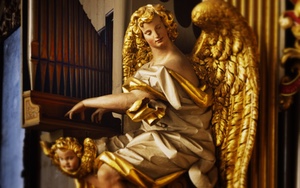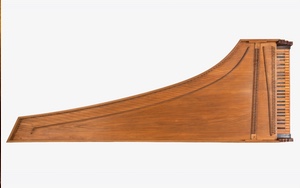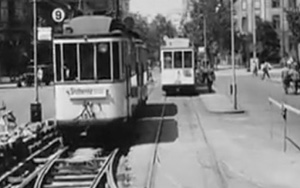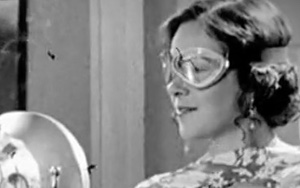Sonification of historical astro photo plates
Coding Da Vinci Nord Award in the category Most unusual use of data
German astronomical observatories own considerable collection of photographic plates. While these photos lead to significant discoveries in the past, they are also of interest for scientists today and in the future. The photos have been scanned and made accesible under a CC0 Creative Commons license by the Leipnitz Institute for Astrophysics in Potsdam.
The idea behind Klang der Sterne / Sound of the Universe is to take the historical measurements as input source for sonification. Listen to the sound of the universe!
The following example is about an eclipsing binary in the constallation Cygnus. The two stars are dancing around each other in 1 day, 9 hours and 24 minutes. During the eclipse the brightness drops a little bit, which has been measured on 1.152 individual photos between 1923 and 1981. The first radio station maps to the dates when the photos have been taken. Then all the data is aggregated to a single rotation of the stars, which has been sonified with this wonderful ancient radio-telescope.
Klang der Sterne Video-Prototyp
V466 Cyg: 60 years of measuring the brightness. Sonification mit Sonic Pi
V466 Cyg: 60 years of measuring the brightness. Sonification with MetaSynth
V466 Cyg: all brightness values mapped to one period of 1.39156629 days. During the 4 repetitions you can hear 8 dark hummings. These are the eclipes. Sonification with MetaSynth
Experiment #4 is a sonification of 2 eclipsing binaries. The left channel of the stereo track is GG Cyg with a period of 2.0084 days – on the right channel we have our dear friend V466 Cyg. This time the hight notes are the eclipse. Sonification mit Sonic Pi.
This is an experiment with 4 tracks. Once again the left channel is triggered by GG Cyg – and V466 Cyg is playing on the right. The chronological ordered brightness measurements are used to play a modified piano sample. Below you can hear the phases like in the previous example #3.
The design and sonification team works under the framework of Coding Da Vinci Nord:
Check the Im research log for more info on eclipsing binaries, the open astro database, and last not least the development of the radio telescope.
Most of the astro pictures have been taken by the Lippert-Astrograph at observatory in Hamburg-Bergedorf. Show location with Chrososcope Hamburg – photo on 1-Mar-2017



